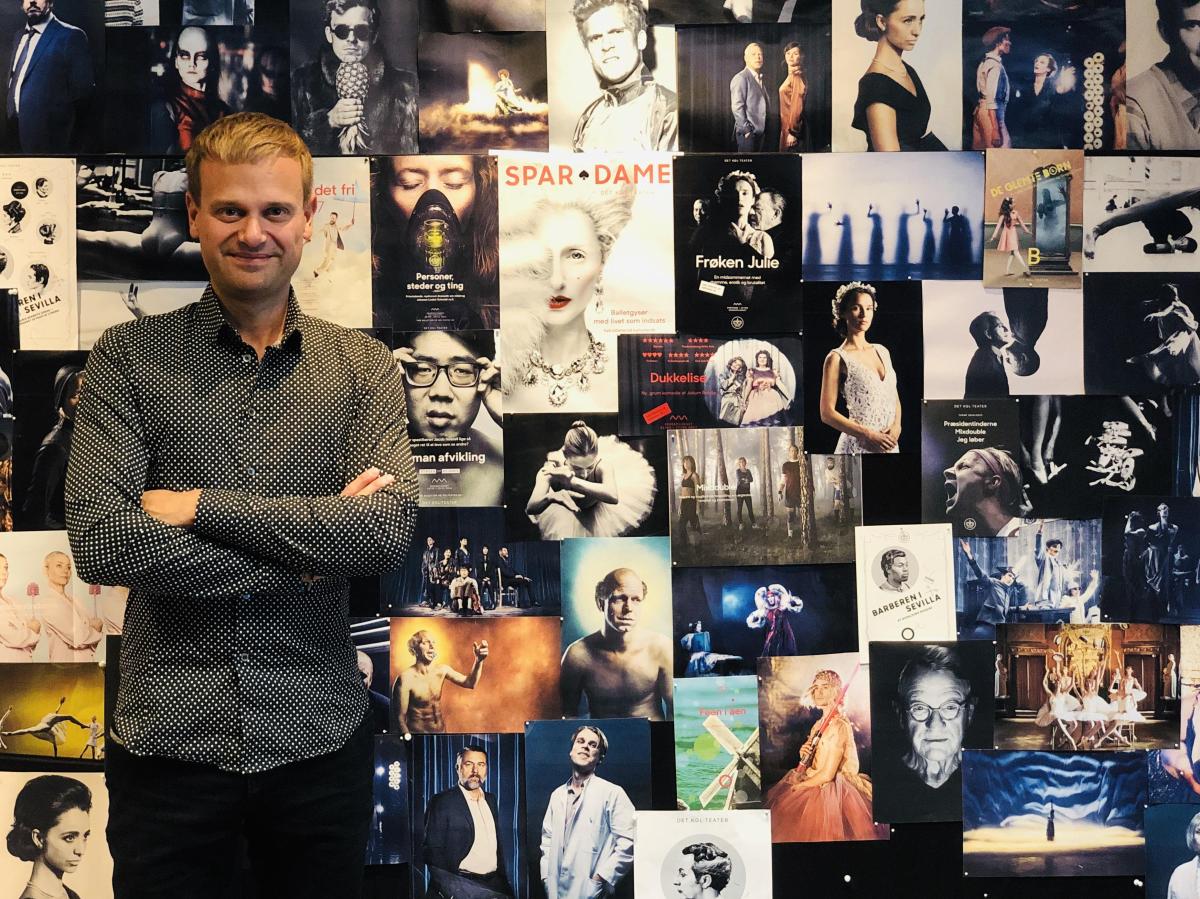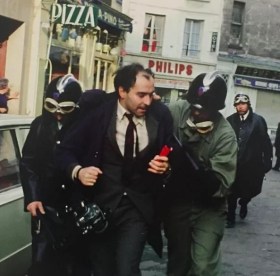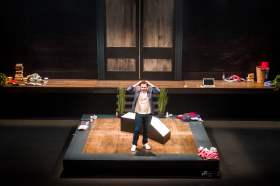Magnus Restofte, Royal Danish Theater. Image supplied.
Today, words like ‘agile, responsive, nimble’ have become part of the zeitgeist but for Magnus Restofte, Head of Communication at The Royal Danish Theatre, they’ve been part of his practice for over twenty years.
‘There is definitely some truth in all of the buzzwords. But I must confess, when it all comes down to making results, then the barrier is more likely internally, than in adapting new buzzwords,’ said Restofte.
‘Comms and marketing teams are bound to be agile and ready to find new ways to connect to our peers and customers. That is in our DNA,’ he told ArtsHub.
Restofte will deliver a keynote for both the Communicating the Arts Conference (12-14 November) and Culture Business (21-22 November), the international conference for fundraising in the arts, which will be presented back-to-back in Sydney, and draw together over 200 national and international specialists in the areas of cultural leadership and fundraising.
With a history of working for the Denmark’s biggest broadcaster, the biggest live venue and now the biggest theater company, Magnus Restofte is one of the leadings in communication and marketing strategies within the experience economy in Europe.
Living the talk from the inside, out
For Restofte, the most important mantra is to get the internal messaging right. ‘First of all you, as an institution, have to find your bigger why and what your assets are,’ he advised.
‘My experience is that you cannot succeed with a successful way of communicating if you have not done the tough talks internally. And with that I mean having an honest dialogue about clear expectations and what the impact will be to the organisation’s way of working,’ said Restofte.
He added that this should encompass everything from the kind of art that finds its way to an organisation’s stages, for example, to getting that message in sync across an organisation, regardless of artform.
‘The homework is not just to create a great new homepage and receive a bigger marketing spend – it is for the organisation to understand that the communication department have expertise that needs to be used in the planning to qualify the expectations and potential of the products,’ Restofte said.
To see the full list of speakers at the Communicating the Arts Conference.

Royal Danish Theater. Image supplied.
Time, not money, is the great determiner
‘Time never comes back. Money, normally (hopefully), does each time you get your paycheck,’ said Restofte, adding however that money alone it not enough to impact choice.
‘We need to convince them [our audiences] to buy ticket number two. Selling ticket number one is the easiest part. If we have connected to the audience, then we can sell ticket number two, and start having new loyal customers,’ Restofte said.
He emphasizes that today because there is ‘tons and tons of data circulating, we constantly need to adjust our communication. And that’s not just to let people know that we are worth spending hard-earned money on – but to try to convince them, that they should spend their time with us,’ he told ArtsHub.
‘So if we want to trade our products with peoples time (and money), then we need to find ways to connect to our potential customers in a more personalised way where we take into consideration that we need to understand their way of living, their understanding of their ‘identity’ and their social values when they decide to go out. It is actually quite difficult.’
To do that effectively, Restofte says that you need significant data to back you up, and then a clear communication and marketing strategy that ‘is not just owned by the communication department, but all the way to the top in your organisation. The last part here is perhaps the biggest barrier to succeed.’
To see the full list of speakers at the Culture Business conference.

Breakfast med Bournonville, Ballet Oprindelsesdato 14 March 2018, The Royal Danish Theatre; Photo Camilla Winther, supplied
Overcoming the data barrier
‘Many people working with art, and especially communicating the arts, can recognise the frustration of not being heard in the organisation, and not being able to qualify the decisions that most likely will have a huge impact on your work,’ Restofte told ArtsHub.
In Resofte’s experience people are quick to blame the marketer: “When the show sells, it must be because of the great art – and when it sells badly, then it must be because of bad marketing.”
‘It is universal [thinking]. At the Royal Danish Theater we have completely changed the way we look at our planning, and the way we communicate. We have been taking the tough talks. And we have today a very transparent way of both planning the art and communicating it,’ said Restofte.
The results are a 10% increase in sales and a growing international reputation.
He told ArtsHub: ‘I have done a lot of keynotes and surprisingly the problems we have been facing in the arts, and experience industry, is very often exactly the same in many other industries!
‘The findings and methods we use at The Royal Danish Theater, is not a ‘theatre tool’. It is a way of being a leader, clearing expectations and removing the obstacles that come in your way of doing a great job in communicating,’ he concluded.
Restofte will deliver those findings – including all the mistakes along the way that have lead to a more agile way of working – at the Communicating the Arts Conference, while for the Culture on Business Conference, he will extend those learning in his keynote address to look at how better to use data and strategy to reach fundraising targets.
To be part of the international conversation around Communicating the Arts (12-14 November), learn how to register.
And to be abreast of the latest funding strategies in the arts, here’s how to register for Culture Business (21-22 November).





